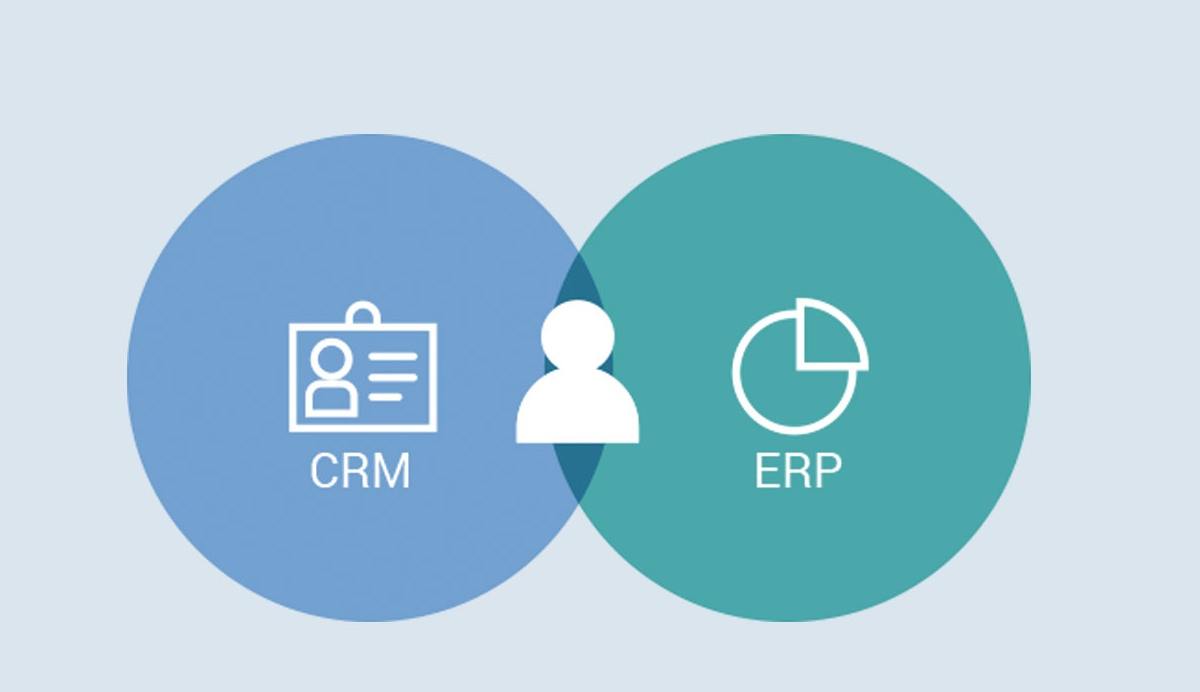In an automation process, the system integration of a CRM and an ERP is a winning method. Companies looking to put in place tools that allow them both to plan the company’s resources and improve customer relationship management are naturally turning to the integration of a CRM and an ERP. Here are the excellent ERP system integration services by diceus.
Advantage # 1 of integrating a CRM into an ERP: improving the quality of your data
The first advantage of integrating a CRM and an ERP is undoubtedly the consolidation of data. Combining these two software will allow you to unify your information and consolidate your database in a single point. By improving the quality of data, you give yourself every opportunity to make more informed management decisions. As data from the sales department speaks with financial data, you limit blind spots even in the most challenging decisions.
Today, all good management goes through the management of data, whether accounting or commercial. Leaders who get top-quality, reliable, and verified information, make the best decisions for the future of their teams. By centralizing the data in two powerful tools, such as a CRM combined with an ERP, the quality of the information is improved.
Advantage # 2 of integrating a CRM into an ERP: more easily find information and gain productivity
Once your databases are consolidated through a CRM and an ERP, it is much easier to find the information you are looking for. Most business leaders underestimate the time spent searching for information by their teams. The use of software packages makes it possible to shorten the research time and improve the units’ productivity.
But productivity isn’t just about time. Employees who have easy access to information about them have better success rates. Their level of responsibility contributes to staff retention. Like any human resource, the employee who has the feeling of freedom in his field is more committed and more loyal to his organization. If your staff turnover rate decreases, your teams become more effective and efficient.
The integration of a CRM and an ERP also reduces sales cycles and accounting cycles through automation. For example. Can reduce quarter closures by several days, thanks to an exemplary configuration of your ERP. With CRM software, your sales reps can close sales transactions faster and increase customer satisfaction rates.
Advantage # 3 of integrating a CRM into an ERP: having a global vision of all operations
Integrating a CRM into an ERP is equivalent to working with two extra-large screens: the joint use of these two software allows a 360-degree view of your economic activity. The panoramic view will enable you to have an accurate picture of your business, whether sales performance or the accounting situation. Imagine managing your business thanks to a double dashboard that allows you to know at any time and from anywhere the health of your organization, but also to see trends arriving while knowing the past.
The advantage of integrating a CRM and an ERP lies in this peripheral vision: thanks to the information collected by the sales team, you can quickly identify the products or services that work best, then there apply the most appropriate marketing strategy. You can also point out the worst-performing items and decide to make a promotional offer to reactivate sales or not to renew the stock, for example.
The integration of ERP with CRM will make the figures speak: is your biggest customer in volume the best payer? What is your bill collection rate? Is your cash flow keeping your business financially healthy? All the answers to these questions that you are probably already asking yourself are listed in the giant dashboard that constitutes integrating a CRM and an ERP.
Advantage # 4 of integrating a CRM into an ERP: the sales team is integrated into all processes for better responsiveness
The ultimate benefit of integrating a CRM and an ERP is akin to creating a bridge between the two teams of sales and administrative and accounting staff. Assuming that information flows freely between different departments, there is a good chance that you can permanently change organizational thinking within your teams.
The accessibility of financial information by the sales team will allow your sales and marketing employees to adapt their strategies based on observed results and general performance. This autonomy tends to reduce the responsiveness of salespeople. Agility is at the heart of successful teams. But . cannot base decision-making on instinct: it takes evidence that highlights the strengths and weaknesses of sales.
The integration of a CRM and an ERP makes it possible to create a bridge between two worlds without switching from one software to another. Access to the databases is fluid and functional.
For your sales team, it’s a great gift to give them: the increase in customer satisfaction in companies that have integrated a CRM and an ERP is incredible. No more transfer from one employee to another to respond to the problem of the same customer: the sales or after-sales service have access to the same customer data and can resolve the situation by staying in the same place.
